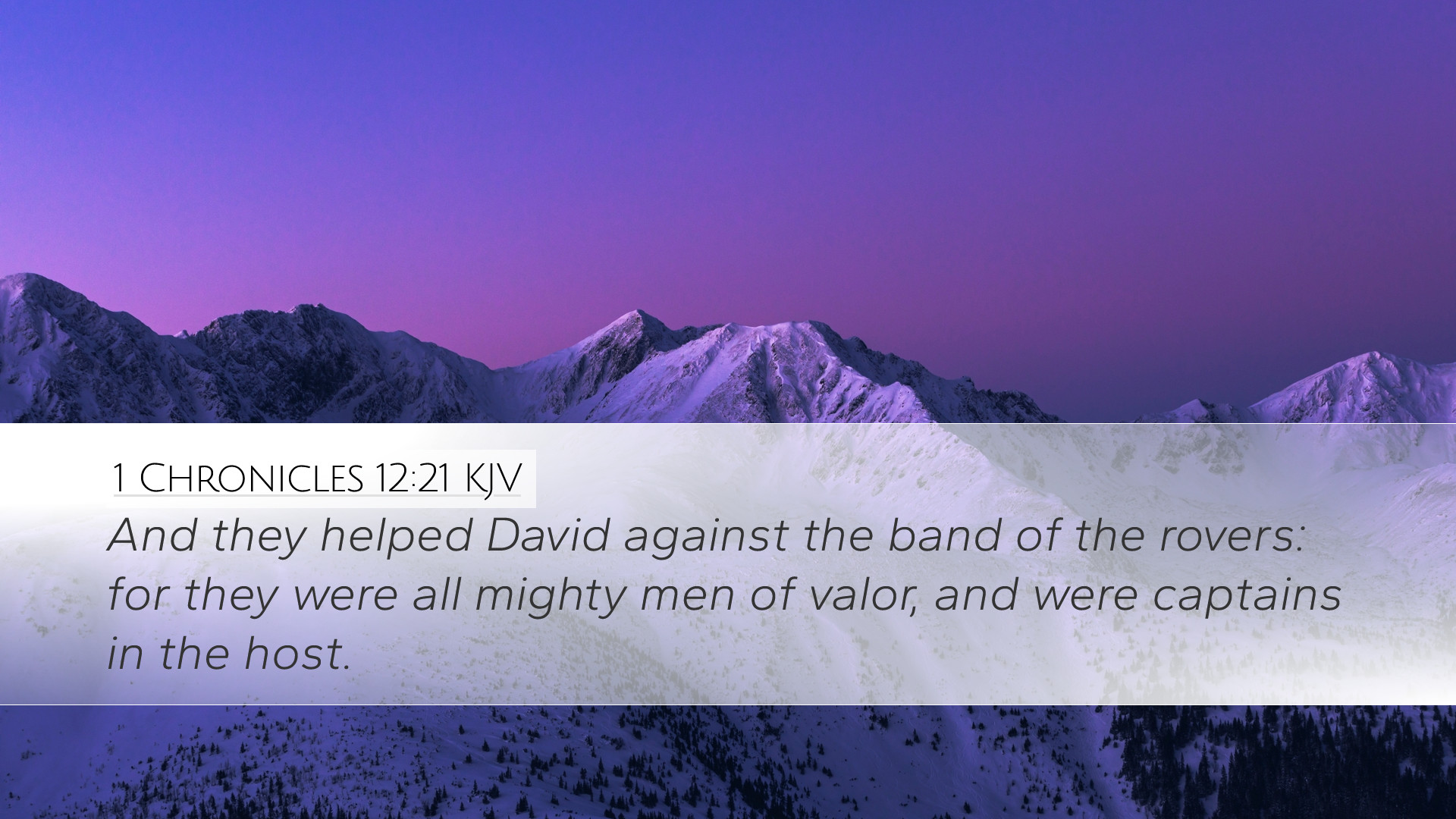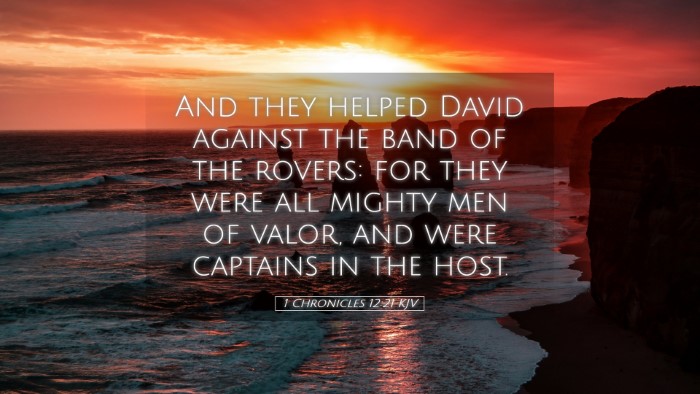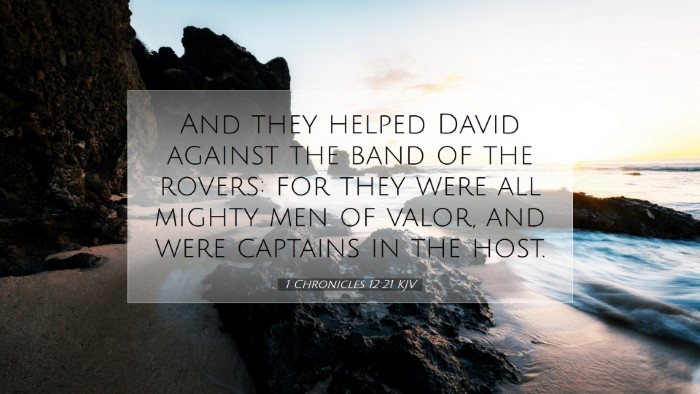Commentary on 1 Chronicles 12:21
Verse in Context: 1 Chronicles 12:21 reads, "They helped David against the band of the rovers: for they were all mighty men of valour, and were captains in the host." This verse highlights a significant moment in the transition of power during David's rise to kingship, emphasizing the contributions of valiant warriors who supported him.
Introduction
This commentary seeks to delve into the deeper meanings and implications of 1 Chronicles 12:21, utilizing insights from renowned public domain commentaries by Matthew Henry, Albert Barnes, and Adam Clarke. The focus will be on the implications of the support David received, the characteristics of the warriors, and the broader theological themes concerning leadership and divine providence in Israel.
Historical Context
The context of 1 Chronicles is crucial for understanding this verse. The book primarily addresses the history of Israel from Adam to the return from exile, with a particular emphasis on the lineage and reign of David. At this time, David was consolidating his rule, having fled from Saul, and was gathering support from various factions in Israel.
The Role of Mighty Men
Henry comments on the valor of those who joined David. He describes them as "mighty men" and underscores the qualities that made them stand out. They were not merely skilled warriors but men of moral fortitude and loyalty. Their enlistment with David represented a decisive turn in his leadership journey, symbolizing God's providence in establishing David as king.
Military Leadership and Support
Barnes adds depth to the military aspect by articulating the necessity of such supporters in the establishment of David's reign. In ancient Israel, military prowess was critical for leadership legitimacy. The leaders of these “mighty men” had their own follows and a reputation that lent credibility to David’s claim as king.
Theological Implications
This verse reflects broader theological themes of divine providence and the establishment of God's chosen leader. Clarke notes how God orchestrated circumstances, bringing together these warriors to David, demonstrating that divine endorsement is often manifested through human actions and allegiances.
The Support of the People
When analyzing the phrase “helped David against the band of the rovers,” one detects a significant moral and societal support structure. This highlights not only military assistance but a communal spiritual alignment with David's purpose. The "band of the rovers" represents forces that operated against the rightful leadership of Israel, thus presenting David as the rightful candidate for kingship.
The Character of the Warriors
In exploring the qualities of David's supporters, it is noted that they were "mighty men of valour." This speaks not only to their physical capabilities but also to their integrity and faithfulness. Henry points out that valor is as much a spiritual quality as it is a physical one. These men were characterized by courage, loyalty, and a commitment to the divine order that David represented.
Moral Valor in Leadership
Barnes further elucidates that true bravery extends beyond battlefield prowess; it involves moral choices and spiritual integrity. The men who rallied to David were not only warriors but were also characterized by a commitment to the ideals of righteousness and justice that David would later embody as king.
Conclusion
This examination of 1 Chronicles 12:21 illustrates a multifaceted view of leadership, communal support, and divine providence in establishing God’s kingdom on earth. The support for David came not just from any warriors, but from those characterized by exceptional valor and moral integrity. The events surrounding his rise illustrate key themes such as unity, purpose, and the manifestation of divine will through human action.
As pastors, students, theologians, and scholars reflect on this text, the elements of God's providence, the importance of character in leadership, and the call to rally behind godly leadership become clear. David's experience speaks to the larger narrative of God's orchestration of history and the vital role of faithful followers in advancing His purpose.


